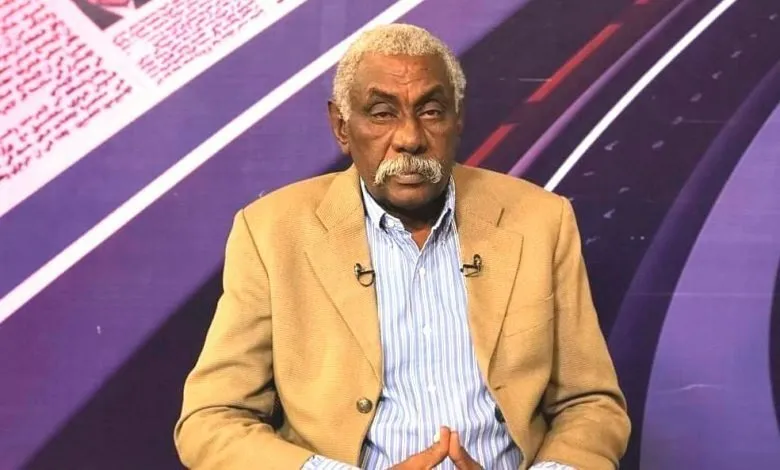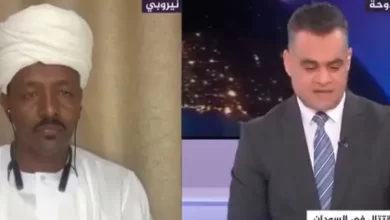Hunger and War
Two punishments for the people’s revolution?!

Al-Jameel Al-Fadil
The de facto government in Port Sudan preempted the issuance of the semi-annual report on the state of famine in Sudan by suspending its participation in a global hunger-monitoring system known as the “Integrated Food Security Phase Classification (IPC) system.” The Minister of Agriculture had accused the classification of “Issuing unreliable reports that undermine Sudan’s Sovereignty and dignity.”
In its semi-annual report, which was actually issued last Tuesday, the global hunger-monitoring system stated that the scope of famine in Sudan has expanded to encompass (5) regions, and that it will probably extend to include (5) other regions by next May.
More importantly, the war and hunger in Sudan are two sides of the same coin, as whenever war breaks out in this country, hunger closely follows, and perhaps it has become one of its most deadly and ferocious weapons.
Sudanese history has witnessed several famines, the most famous of which was the famine of the “sixth year” -in reference to (1306 AH).
That particular famine claimed the lives of hundreds of thousands of people and livestock in Sudan due to the involvement of most farmers and herders in fighting the Mahdist wars, which kept them rather preoccupied.
The famine of the “sixth year” that struck the country during the reign of Khalifa (Caliph) Abdullah al-Ta’aishi, in addition to the death of thousands of people, resulted in the widespread of epidemics and diseases. Moreover, it resulted in the destruction of agricultural crops and livestock, along with the spread of crimes, social unrest, and the occurrence of massive waves of displacement and immigration.
All of the aforementioned effects became additional factors that contributed to the fall of the Mahdist State.
Similarly, the second famine that occurred in (1984) came after the renewal of the war in the south region, in (1983), its repercussions heavily influenced the fall of former President Jaafar Nimeiri’s rule, who apparently had -at the time- run out of options to confront the effects of that catastrophic famine, and was left with no choice but to submit to the conditions of the American Administration dictated to Nimeiri by (Bush, the father). The latter is believed to be one of the most important American figures who directly contributed in shaping the variables on the Sudanese scene in the eighties of the last century, through the controversial visit he made to Khartoum in January, 1985 in his capacity as Vice President of the United States – Ronald Reagan was the President at the time. That visit came less than two years after President Jaafar Nimeiri announced the implementation of the September laws, and -perhaps unfortunately- during the time period Sudan was affected by the repercussions of the drought that struck various parts of the country and Ethiopia at the same time.
The visit of Bush Sr. – the highest-ranking American official to visit Khartoum since that date until today, is considered to have paved the way for the overthrow of President Nimeiri’s rule through a popular uprising that took place in April of the same year, through secret meetings that brought together the then-American Vice President with the leaders of political opposition to the regime at the Washington Embassy in Khartoum, in addition to another meeting with professors at the University of Khartoum, the birthplace of the October Revolution that overthrew the rule of General Abboud in (1964).
Identical sources reveal that Bush Sr. asked Nimeiri during the visit to be more moderate, refrain from leaning towards extremism, and to respect the principles of International Human Rights.
It seemed as if the visit of Reagan’s Vice President had already written the final chapter of the honeymoon between the Nimeiri regime and the Islamists, as these sources reveal: A few days before Nimeiri left on his last trip to Washington on (March 26th, 1985), Sudanese radio broadcasted military (march) music after which Nimeiri, in fulfillment of his pledges to Bush Sr. announced the end of his ambiguous relationship with the Islamic Movement Organization, which was immediately followed on March 9th by a wide-scale arrest campaign that included most of the Movement’s symbols and cadres, a number of whom held constitutional positions.
The writer Alex de Waal states in an article entitled: (The Unfading Shame: The Legacy of Denying Famines): “In (1992), at the height of the radical political Islam project in Sudan, when members of groups such as Al-Qaeda and Hamas were gathering in Khartoum, the Muslim Brotherhood launched a campaign called (Jihad) in the Nuba Mountains, where they declared that the inhabitants of the region, whether they were Muslims, Christians or followers of traditional religions, were infidels who must be killed or forced to convert to Islam.
With a complete news blackout, the mujahideen accompanied the Regular Armed Forces and began arresting the locals, transferring them to camps far from their homelands, with the aim of forcibly converting them into Muslim subjects.
However, from the heart of this darkness, the people of Sudanese cities stood by these hungry and destitute displaced persons, refusing to remain silent in the face of their suffering.
Informal support networks worked in cooperation to break the wall of secrecy that the regime attempted to impose, which contributed to undermining the authority’s resolve to carry out a campaign of genocide through starvation.
Today, we find renewed hope through a community movement that struggles to feed the hungry and break the barriers of denial, even under more complex circumstances.
The (local emergency response rooms), those volunteer teams that work tirelessly to provide aid, represent the only light in the widening darkness that surrounds Sudan.”
De Waal went on to add: “The ongoing war in Sudan began in April (2023), when military confrontations took place between the Sudanese Armed Forces (SAF) and the Rapid Support Forces (RSF).
This war led to widespread famine, not only as a result of the significant scale of destruction caused by the clashes, but also because one side uses starvation as a weapon, albeit in different ways.”
In any case, I believe that Port Sudan’s attempts to deny the existence of a famine in the country are considered a second punishment following the punishment of war, on the people who revolted against the political Islam regime in Sudan.
Indeed, the punishment of hunger may be even more severe than the punishment of war itself.
As the Russian sociologist Pitirim Alexandrovich Sorokin says: “Severe mass hunger not only destroys the social fabric, but also hardens the soul and strips it of its humanity. As each death in these famines was a tragedy in itself, but famine isn’t just a set of individual tragedies, but rather an instrument of massive social destruction.”





